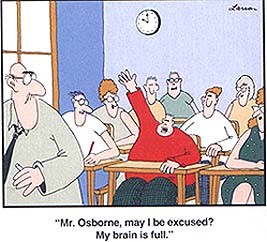As per Adeptus's answer, officially and without optional rules, initial training isn't quantified. Further, while level 0 creatures were a thing in previous editions of Dungeons and Dragons, they usually aren't in Dungeons and Dragons, Third Edition and many of its offspring. A creature without racial Hit Dice has a class level, even of commoner.
Below are two options you can use to determine a character's initial training time.
The hard numbers way from the Dungeon Master's Guide
The following times and costs are gleaned from the Dungeon Master's Guide using the optional rules on How PCs Improve (197–8). These rules are deliberately vague, the DMG expecting the DM to compose his own house rules for such training sequences, but I've summarized the DMG's suggested times and costs on the chart below.
ADVANCEMENT | TIME | COST |
------------------|----------------------|---------------------------------|
Skill Rank [1] | 1 week/rank | 50 gp/week |
------------------|----------------------|---------------------------------|
Feat [2] | 2 weeks | 100 gp |
------------------|----------------------|---------------------------------|
Spell | | |
Wiz/Brd | 1 day/spell | (spellcasting cost ×2) gp [3] |
Sor [4] | varies | appropriate service |
------------------|----------------------|---------------------------------|
Class Benefits | | |
with trainer [5] | 1 week/2 levels [6] | 1,000 gp/week |
w/o trainer | 2 weeks/2 levels [6] | 1,000 gp/week |
------------------|----------------------|---------------------------------|
NOTES
[1] A character can simultaneously train in 2 skills, paying full price for each.
[2] A character can simultaneously train for 2 feats, paying full price for each.
[3] Spellcasting cost is as per Table 7–8: Goods and Services under
Spellcasting and Services (PH 129).
[4] To gain spell knowledge, sorcerers seek out magical creatures and
perform services for them. No, really.
[5] Trainer must be higher level in the class in which the character seeks
training.
[6] Rounded up (for example, from nothing to Bbn1 requires 1 week, from Brd2
to Brd3 requires 2 weeks).
Thus, for example, for a human blank slate with no previous class or feats and an Intelligence score of 10 to become a level 1 rogue spends 36 weeks and 1,800 gp to learn his 36 skill ranks, 4 weeks and 200 gp to learn his 2 feats, and with a trainer 1 week and 1,000 gp to gain the class features of a level 1 rogue. The human's finished his training in 41 weeks and paid an awesome 3,000 gp. The time (but not expense) could be reduced by training skills and feats simultaneously.
These rules cause the universe to pump out clerics with ease (low skill points and no spell acquisition) and make wizards extremely rare given the relatively enormous price of acquiring their spells.
These rules also mean creatures with low Intelligence scores complete their training before creatures with high Intelligence scores have completed theirs.

Which is fair enough, I suppose.
The make stuff up way from the Player's Handbook 2
First, a creature goes on a rebuild quest as described in the Player's Handbook II. These are designed for rebuilding existing PCs, so the language below is specific to those creatures.
A quest to rebuild a character should excite and frighten players. It’s an adventure few characters would willingly embark upon and fewer still could survive. To make rebuilding an option at all levels of play, however, the degree of challenge must change according to the PCs’ level.
[An objective the DM determines] represents the final encounter before a character can undergo rebuilding. The PCs might need to embark on a perilous overland journey or a long dungeon crawl to get to this encounter.... Set up the preliminary adventures in whatever way best fits your game and your players’ desires. (199)
However, nothing prevents the DM from saying that a creature, for example a human commoner 1, underwent a rebuild quest before the game began. (Perhaps this is the character's origin story.)
Then, once the rebuilding quest is complete,
[Y]ou can change a number of levels equal to 1/5 his character level (rounded up) from one class to any other class (or classes). (198)
Thus completing that rebuild quest could, for example, replace that human commoner 1's level of commoner with a level of wizard.
As the quest can be of any length, this makes the so-called training time (actually, adventuring time) for acquiring a creature's first level as long as the DM wants it to be.

